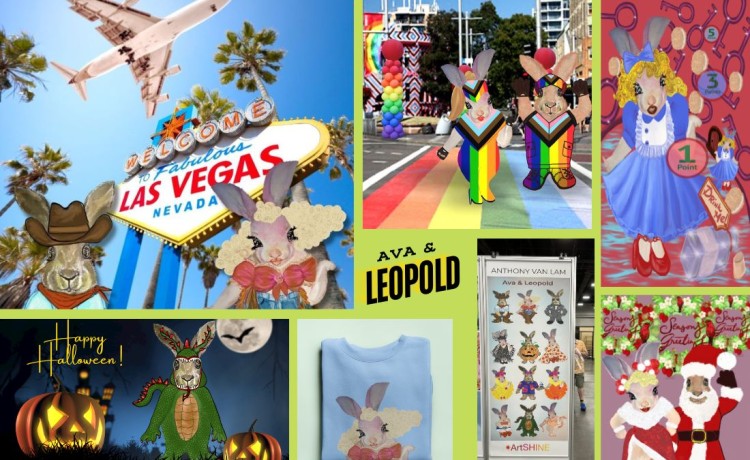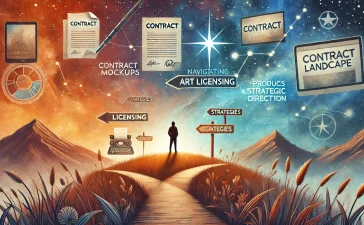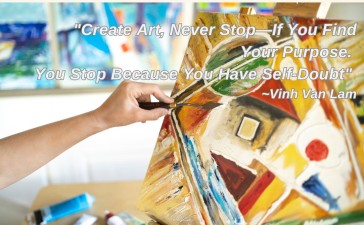Building a character into a celebrity-like status that companies want to license is a complex process that requires creativity, strategic planning, and persistence.
Here’s a comprehensive guide on how to elevate a new character to a licensable status:
- Create a Compelling Character
The foundation of any successful character franchise is the character itself. Your character should have:
- A unique and memorable design
- A rich backstory and personality
- Relatable traits that resonate with your target audience
- Versatility to fit into various scenarios and product categories
Remember, characters like Mickey Mouse or Harry Potter didn’t just appear; they were carefully crafted and developed over time.
2. Develop a Strong Narrative
Characters need stories to come alive. Develop a narrative world around your character:
- Create a series of stories or adventures featuring your character
- Ensure the stories are engaging and appropriate for your target demographic
- Consider different media formats: books, comics, animated shorts, etc.
3. Establish a Strong Visual Identity
Consistency is key in character branding:
- Develop a style guide for your character
- Include different poses, expressions, and outfits
- Ensure the character can be easily reproduced across various mediums
4. Start with Digital Presence
In today’s digital age, building an online presence is crucial:
- Create social media accounts for your character
- Regularly post content: funny quips, daily adventures, or relatable situations
- Engage with followers to build a community around your character
5. Produce Content Consistently
Keep your character in the public eye:
- Release regular content featuring your character (e.g., weekly webcomics, daily social media posts)
- Collaborate with other creators or brands for cross-promotion
- Consider creating a YouTube channel or podcast featuring your character
6. Seek Exposure Through Partnerships
Look for opportunities to increase your character’s visibility:
- Collaborate with small local businesses for limited editions merchandise
- Participate in local events or conventions
- Offer your character for charity events or causes
7. Develop a Licensing Strategy
As your character gains popularity, start thinking about licensing:
- Identify product categories that align with your character’s identity
- Research potential licensing partners in these categories
- Develop a licensing pitch that showcases your character’s popularity and potential
8. Create a Merchandise Line
Start small and test the market:
- Begin with a limited range of products (e.g., t-shirts, stickers, mugs)
- Use print-on-demand services to minimize upfront costs
- Gather feedback from customers to refine your offerings
9. Leverage Fan Engagement
Encourage fan participation:
- Host fan art contests
- Create interactive storytelling experiences
- Respond to fan suggestions and incorporate them into your character’s world
10. Explore Animation and Video Content
Moving images can bring your character to life:
- Create short animated clips or videos featuring your character
- Consider pitching an animated series to streaming platforms or TV networks
- Use these videos for social media content and promotional material
11. Attend Industry Events
Network and showcase your character:
- Attend licensing expos and trade shows
- Present your character at comic conventions and pop culture events
- Use these opportunities to meet potential licensing partners
12. Protect Your Intellectual Property
Ensure your character is legally protected:
- Register trademarks for your character’s name and likeness
- Copyright your character’s stories and designs
- Consider seeking legal advice to ensure comprehensive protection
13. Work with a Licensing Agent
As your character grows, consider professional help:
- A licensing agent can connect you with potential licensees
- They can negotiate deals and manage relationships
- Agents often have industry insights that can be valuable for growth
14. Develop a Brand Extension Plan
Think beyond the initial character:
- Create supporting characters or spin-offs
- Develop themed product lines (e.g., seasonal collections)
- Consider expanding into different age groups or demographics
15. Maintain Quality Control
As you license your character:
- Develop clear guidelines for how your character can be used
- Regularly review licensed products to ensure quality
- Be prepared to say no to deals that don’t align with your character’s values
16. Stay Relevant and Evolve
Keep your character fresh and exciting:
- Stay attuned to pop culture trends
- Evolve your character’s story and design subtly over time
- Engage with your audience to understand their changing preferences
17. Leverage Technology
Use emerging technologies to engage fans:
- Develop mobile apps or games featuring your character
- Explore AR/VR experiences
- Consider creating NFTs or digital collectibles
18. Build a Team
As your character grows, you’ll need support:
- Hire artists, writers, and marketers to help develop and promote your character
- Consider bringing on business development professionals to seek licensing opportunities
19. Be Patient and Persistent
Building a character into a licensable property takes time:
- Be prepared for a long-term commitment
- Celebrate small victories along the way
- Learn from setbacks and adjust your strategy accordingly
20. Study Success Stories
Learn from characters that have successfully made this journey:
- Analyze how characters like Hello Kitty or Angry Birds became global phenomena
- Understand the strategies used by independent creators who’ve achieved licensing success
Remember, while working with a licensing agent can be beneficial, it’s not always necessary at the beginning. Many successful character brands started small and grew organically before attracting the attention of major licensees.
The key to success is creating a character that resonates with people, consistently promoting and developing that character, and being strategic about growth and partnerships. It’s a challenging process that requires creativity, business acumen, and perseverance, but with the right approach, it’s possible to build a character that companies are eager to license.
As your character gains traction, the collaboration with a brand/licensing agent becomes increasingly important. They can provide invaluable industry connections, negotiate better deals, and help manage the complex world of licensing agreements. However, it’s crucial to have already established a strong foundation and some market presence before approaching an agent, as this will make your character more attractive to both agents and potential licensees.
By following these steps and remaining dedicated to your character’s growth, you can increase the chances of building a character that not only captures the hearts of fans but also attracts the interest of companies looking for the next big licensing opportunity.
- Find out more
- Launch Pad + Accelerator Expressions of Interest
- Selling and Licensing Your Art & Designs Around the World with ArtSHINE.
- Looking for exciting new Art and Designs to license.
We’re here to help you to take action, just like we’ve helped thousands of other entrepreneurs, business owners, and creative professionals all around the globe.
Now is the time to let your passion SHINE.
Now is the time to Make Tomorrow Today!
To your success, Vinh Van Lam and Stuart Horrex Cofounders ArtSHINE.com





